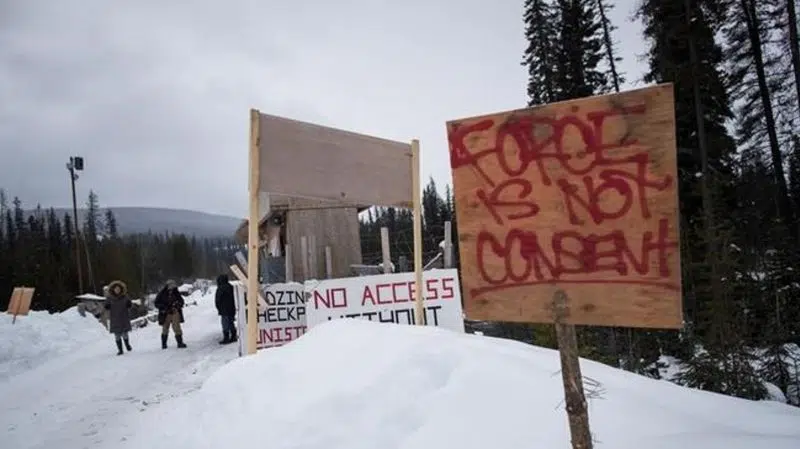
B.C. Supreme Court grants natural gas pipeline company interlocutory injunction
VANCOUVER — The British Columbia Supreme Court has granted Coastal GasLink an interlocutory injunction against members of a First Nation and others who oppose the company’s natural gas pipeline.
The company is building a pipeline from northeastern B.C. to LNG Canada’s export terminal in Kitimat on the coast.
Coastal GasLink says it has signed agreements with all 20 elected First Nations councils along the 670-kilometres route but hereditary chiefs in the Wet’suwet’en First Nation say the project has no authority without their consent.
The court had granted the company an interim injunction last December against pipeline opponents and protests erupted around the world when RCMP enforced it in January, arresting 14 people along a logging road leading to the construction site near Houston, B.C.


